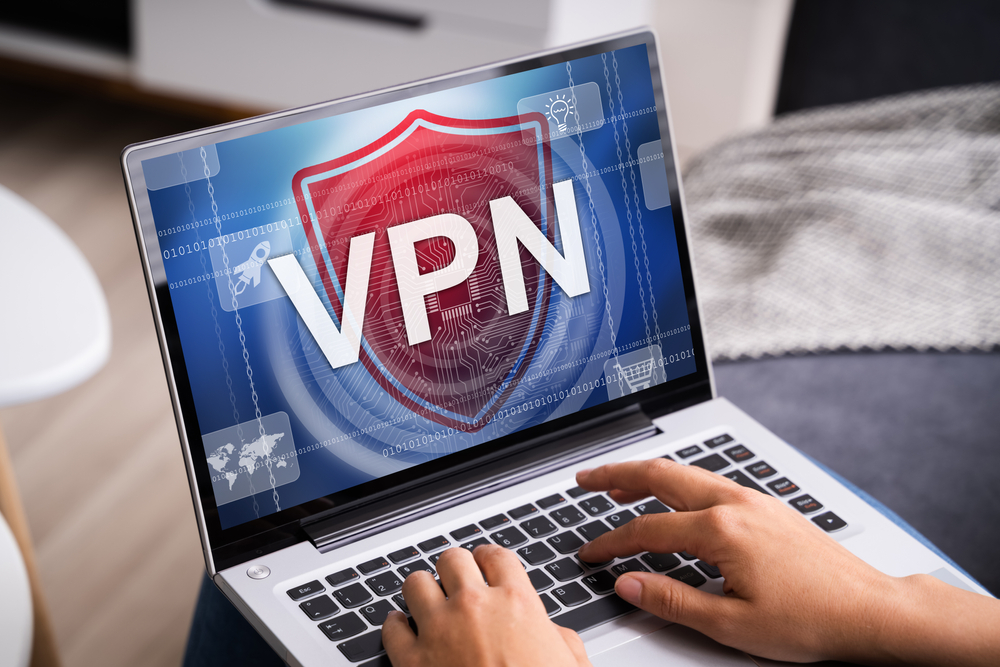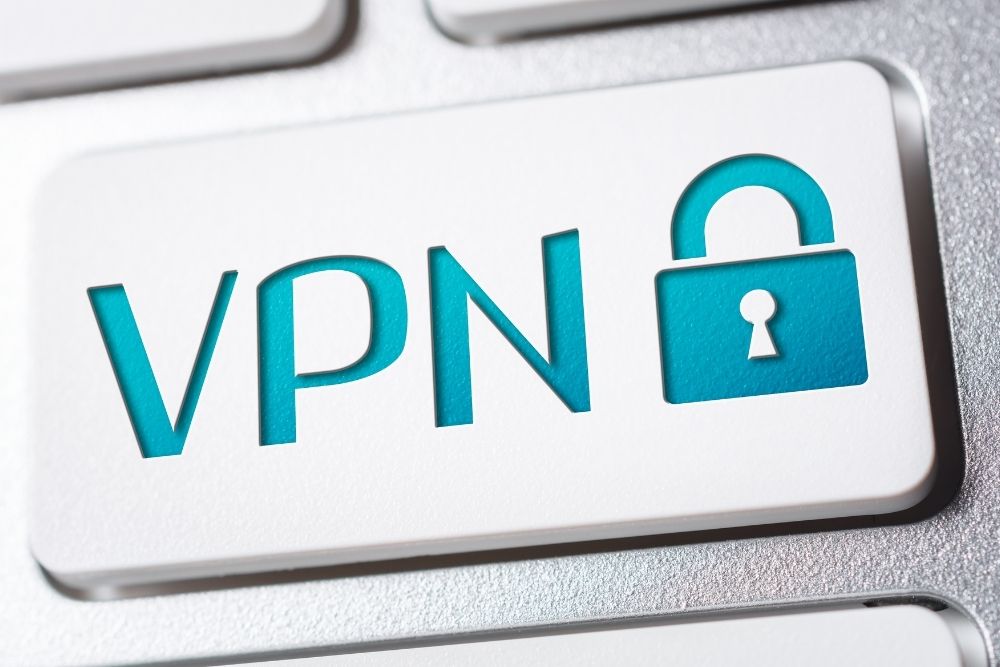If you want to find a solution to accessing the internet anonymously and securely every time then using a VPN could be the perfect solution for you. Your device will already have a VPN in place but it can cause blockages via detection, especially when it comes to venturing on websites that feature geo-blocking which can prevent access depending on where you are.
By using a VPN service, you can make your online footprint geographically invisible which will allow you to have access to a wider range of sites anonymously and securely with a minimized risk of detection, especially when browsing using public WiFi. However, know how to make a VPN undetectable and able to bypass blockers with ease.
The best VPN provider on the market is ExpressVPN which not only provides the best service in terms of security and ease of use but also has a 30 day returns policy so you can purchase it with peace of mind knowing that you will get your money back if you decide it’s not for you. In this guide, we’ll be discussing why VPNs are often blocked and how to bypass these blocks.

Why VPNs Are Blocked
The first thing that is important to know is why VPNs are blocked. There are a number of reasons depending on what it is that you are looking for with some sites being blocked due to censorship and others due to copyright. Here are the most common reasons why VPNs tend to be blocked:
Censorship
Firstly, VPNs are most likely to be blocked due to government censorship. A website could be blocked if it doesn’t conform to the cultural or moral values of a country.
There are countries that are stricter than others when it comes to censorship with China being among the strictest. China has applied what is called its Great Firewall which restricts access to a wide range of sites including Google, Youtube, various social media apps, and news sites among much more.
On top of this, China has also restricted the majority of VPN service sites meaning that those in China would find it extremely difficult to get around this block. Other countries that have strict censorship include Iran, Turkey, and the UAE as there are certain social media sites that are banned as well as VPN services.
Copyright
The second reason is also the most common reason which is copyright infringement. This relates to sites such as Netflix which has differing libraries depending on the country so what is available on US Netflix is not guaranteed to be the same as the content on UK Netflix.
Other examples of copyright infringement could be sending and receiving files such as copyrighted movies and songs which have not to be paid for or are not available in your country.
If you do engage in illegal activity such as this and don’t have a VPN in place, your internet service provider will be able to see and will subsequently notify the authorities.
Geographical Restrictions
Following on from copyright infringement, we have geographical restrictions which is another reason why Netflix may be different in each country. This rule mainly applies to streaming services as the distribution rights to certain content such as films, TV shows, and music may differ depending on the country.
This means that a film that is available to view in the UK on one platform may not necessarily be available in the US on the same platform. This is why companies such as Netflix have started to make their own content as it allows all users across the globe to access the same shows and films.
Having a VPN can allow you to alter your location anonymously and allow you to view services that are available in other countries although bear in mind that this is illegal and companies such as Netflix have made it even more difficult to bypass their geoblocking code.
Professional Restrictions
Lastly, blocks can happen due to professional restrictions which are mainly applied by schools and workplaces to prevent students and employees from venturing onto social media or streaming sites when they are connected to the institution’s WiFi.
Different Types Of VPN Blocks
Now that you know why VPNs are blocked, it’s important to know how they are blocked. This is to help further your understanding of how a new VPN can bypass these blockages. Here are the most common types of VPN blocks:
Deep Packet Inspection (Known As DPI)
The first kind of VPN block is a Deep Packet Inspection which is known as DPI and is one of the more advanced blocks. DPIs work differently as they investigate the type of traffic rather than the location of the traffic.
Incorporating technology such as OpenVPN, DPIs apply cryptography signatures which can strip away a VPN’s anonymity. Even if they cannot identify the specific VPN, DPIs are able to see that they are equipped with a high level of encryption and therefore apply the block without having to rely solely on the location of the user.
This block is what China uses within the Great Firewall to minimize the number of VPNs use and is the main reason why finding and using a VPN is so difficult within the country. The way to avoid this kind of block is by having an option to alter your security settings within your VPN.
IP Blocks
The most common kind of block used is the IP block. When a VPN is applied, it will display an IP address that matches the server’s meaning that geoblocking should be limited. However, it is not as simple as this, especially as companies find more ways to stop this from happening.
Streaming sites such as BBC iPlayer and Netflix have a log of VPN IP addresses and when that IP address is used to stream on their sites, it will be automatically blocked. Whether this happens or not depends on how secure your VPN is and whether it has the capabilities to bypass this block.
Port Blocking
Lastly, Port Blocking is a technique that blocks VPNs that constantly come through the same port when accessing certain sites. Sites may have a list of ports that are known to route through VPNs such as port 1194 so the website simply monitors the activity from that VPN and is able to determine that the traffic should be blocked.
If you are caught and Port Blocked, you’ll be stopped from accessing that sight via or VPN or even without it. This type of block is not as common as DPI or IP Blocking and can easily be prevented by switching the ports that your traffic is filtered through.

Bypassing VPN Blocks
Knowing how the VPNs are blocked is crucial because then you will have a better understanding of how they can bypass these blocks.
The first course of action is to make sure you have a quality VPN that comes with high security which will give it a better chance of getting around blocks undetected. Here are some of the best ways to bypass VPN blocks:
Changing Ports
The first thing you can do is changing ports. As mentioned earlier, one of the ways that VPNs are easily detected is because the traffic is constantly being filtered through the same port which makes it easier to be tracked and then blocked. Here are some of the ports that you should switch to:
Port 80
Firstly, Port 80 is the best choice for those who want a higher rate of encryption thanks to its high security making it reliable for all HTTP sites meaning that you have a minimal chance of being detected. Depending on what VPN you use, you may be able to utilize the SSTP protocol which provides an extra level of protection.
Port 443
Secondly, Port 443 is another popular choice for those who have unencrypted traffic. This is especially useful for those making purchases online and wants to ensure that their financial and payment information is secure and not at risk of being leaked.
Using Port 443 provides a minimal chance of being detected when making payments so you don’t have to worry about any complications occurring when entering in your information.
Changing Security Protocols
When researching which VPN is right for you, you’ll see that each service offers something different in terms of their security so knowing what level of security you want beforehand will definitely be best for you.
One of the best choices is OpenVPN thanks to its advanced technology, fast speeds, and high-security levels. However, it is not always the best when it comes to avoiding detection from blockers as lots of algorithms are set to detect OpenVPN traffic specifically.
There are some VPN services that offer fast speeds which can be ideal for those wanting to bypass any geographical blocks while others are better for providing anonymity and keeping your personal information and data secure and hidden from any leaks.
Dedicated IP Address
Having a dedicated IP address can be great for those wanting to prevent detection. When you purchase your VPN subscription, you can choose to add on a dedicated IP address for an extra fee which will give you more security and will have a stronger chance of bypassing a higher number of different blocks while also ensuring that you avoid detection and blocks.
Dedicated IP addresses work by providing you with a specific IP address that isn’t used by anyone else meaning that it will come across that you are a regular user as they won’t be inundated with traffic using the same IP address or VPN.
This option costs more but is the best choice to consider as it provides you with all the security and protection you need to stay safe and anonymous on the internet without fear of detection or blocking.
IKEv2
IKEv2 stands for Internet Key Exchange v2 which incorporates IPSec security as well as boasting faster speeds. If you are looking for a bypass for portable devices such as a mobile phone or tablet then this is the best option as it automatically reconnects you should you lose your connection.
The downside to this option is that it can be timely and difficult to set up as well as remaining compatible with a select few devices so make sure it works with your device beforehand.
L2TP or IPSec
L2TP and IPSec are combined options that work differently with the former providing fast speeds but compromising security and the latter providing extra security with lower speeds.
It can take a long time to set these up and it is more inconvenient as it is a bypass option that comes with two different components so it is definitely among the weaker options in this list. Therefore, only consider this choice when you don’t have any other alternatives to choose from.
Obfuscated Server
One of the most commonly used methods to bypass blocks is obfuscated servers. These are highly advanced servers that provide VPNs so you can be sure that they are not going to be detected.
Using a VPN connection provides you with the ability to bypass blocks, but your internet service providers and other third parties may be able to see that you are using VPN, although they won’t see what sites you are using it for.
Obfuscated servers hide the presence of your VPN connection altogether which means that no one will know that you have one and it will appear as though it is any other internet traffic. This means that you will appear as any other internet usage so you have very little chance of being blocked while also being protected with an extra layer of security that allows you to search anonymously at all times.
If you are searching from countries that have heavy use of censorship such as China, having an obfuscated server can be handy as VPNs are completely banned and since they use different ports each time, it makes it very difficult to detect you as it is impossible to keep an eye on every single port.
PPTP
One of the oldest solutions to bypass blocks is PPTP which should be used as a last resort due to its low security. This is because the technology in PPTP isn’t as advanced and although it has fast speeds, there is a high chance that you will be detected as well as an increased chance of your personal information being stolen or leaked, especially when using your device in a country that has strict laws regarding censorship.
Using PPTP can be good for those who want to bypass any geographical restrictions but be cautious when using this option as it does come with a lot of risks.
Server Switching
If you find your VPN is constantly getting blocked by the same sites over and over, you can simply switch your server which will give your VPN a refresh and ensure that the sites have a tough time detecting your new VPN.
Making sure that you choose a VPN that has a higher number of servers will lessen the chances of your VPN specifically being detected and blocked and will also likely have more benefits when it comes to the security of your VPN.
SSTP
SSTP is an option that uses specific ports to bypass blocks making it a highly secure option. It filters traffic through port 443 which is one of the hardest ports to detect and is only available for those using Windows devices.
Switching To Mobile Data
For those who are tired of website blocks in the workplace or are at school, you can bypass them by disconnecting from the WiFi and using your mobile data.
This will take away any restrictions that were in place when you were using the WiFi; however, bear in mind that this option will eat away at your data so if you have a limited amount of data in your contract, make sure that you are not using it too much to prevent high bills.
WireGuard
Lastly, consider investing in WireGuard which is a newer alternative that combines fast speed with OpenVPN security so you can bypass an array of blocks. A fantastic choice for those who want higher security, they do offer select VPNs such as CyberGhost and only work on Linux devices so it is quite limited in terms of its products and versatility.

Other Ways To Prevent Blocks
We’ve discussed the most common ways that you prevent any blocks but there are others, especially if you are more advanced with your technological skillset and want to boost the amount of protection your VPN has. Here are some of the other ways that you can prevent blocks:
SOCKS5 Proxy (Also Known As Shadowsocks)
Known as Shadowsocks, SOCKS5 Proxy incorporates the Socket Secure 5 protocol which transfers data via a proxy server. This means that there is an extra layer of security as the user is the only one that has access to the proxy meaning that you can be assured of anonymity and security when accessing the internet.
If you are wanting to share files via P2P, this is one of the best options as the proxies use remote servers which bypass any blocks which is ideal for those in countries that apply heavy censorship laws such as China.
This is because the traffic is filtered through a proxy server which gives you a new IP address so when accessing sites such as Google in China, they’ll be able to see the new IP address and not your actual one. This means that you have a layer of anonymity.
The downside to SOCKS5 Proxy is that it isn’t the most secure option on the list as it doesn’t have as high a level of encryption which means that the more you use it, the more likely it can be that you are going to be detected. However, this can be altered depending on what VPN you invest in as paid VPN is more likely to give you high-quality encryption that will combine with this proxy to offer flawless service.
Although this may cost more, it will ensure that you are as protected as possible when using the internet, especially if you are in a country with strict censorship laws.
SSH Tunnel
If you are looking for an option that encrypts your traffic then an SSH tunnel is a good option to consider as it filters your data through various servers that allow it to bypass blocks undetected.
SSH tunnels can be made by using local port forwarding which is when your device is connected to another device to bypass the block. This can be handy if you are wanting to make purchases but want the data to be as encrypted and secure as possible so it doesn’t fall into the hands of hackers. It uses methods such as FTP which means that lots of different applications can be used without being blocked.
The slower speeds, however, mean that it isn’t ideal for certain uses such as streaming sites as you’ll find that it buffers so going for an alternative option that boasts faster speeds is best.
SSL/TLS Tunnel
Similar to SSH tunnels, SSL/TLS tunnels are great for those who want a high level of encryption as they deal with high levels of traffic and are ideal for protecting private data such as online banking, allowing you to transfer money safely.
You’ll find that many high-quality VPNs offer this anyway but having an SSL or TLS tunnel can provide extra benefits such as additional security and guaranteed anonymity.
Utilizing port 443 specifically, any sites that are monitoring this port will not be able to tell that you are using a VPN as it will disguise it as regular HTTP traffic meaning that you are just a regular user.
It can take a long time to set these tunnels up but they are easy to install and easy to use making them great for those who want to advance their protection in the easiest way possible.
Tor Browser
Lastly, the Tor browser can be a handy option for those who are more advanced with technology as it is an open-source software meaning that you can access and browse on the internet anonymously.
Often associated with the dark web, the Tor browser simply adds a layer of security for its users by entering the traffic through the Onion Router which contains high levels of encryption to keep users anonymous. It is called the Onion Router because of the many layers of coding and encryption that it contains which makes it impossible to penetrate.
Bear in mind that the Tor browser on its own doesn’t provide 100% security as your IP address may be located at the entry and exit points which are always monitored by various agencies due to Tor’s connection with the dark web.
If you are wanting to use the Tor browser, then make sure you have opted for a VPN that boasts the highest level of security as well as an alternative IP address to ensure that you are being as secure as you can.
When researching which VPN is right for you, always make sure that you find one that is VPN Over Tor meaning that you will connect to the Tor network first and then the traffic is filtered through the VPN server.
This means you will have protection at the entry and exit points and will make it harder for sites to block you and difficult for hackers to expose your personal information.
The Best VPN Service

Now you know everything there is to know about how VPNs work, how they can bypass blocks, and most importantly, the different types of blocks you can encounter, it’s time to research a variety of VPN services to find which one is going to be best for you and help to reduce your chances of detection and subsequent blocks.
There are a lot of options for you to choose from with paid and free options to suit all budgets; however, bear in mind that free VPNs have a much higher chance of detection because they are more limited in their benefits and are not as encrypted meaning that you are most likely to be detected at some point.
On the other hand, a paid VPN requires monthly payments which can be expensive, but you are guaranteed to have higher security and anonymity as well as better benefits which will make the VPN more successful.
When it comes to determining which VPN service is the best of the best, it definitely has to be ExpressVPN. You’ve probably come across ExpressVPN before and with good reason. It is one of the most popular options because of the wide variety of benefits it provides.
ExpressVPN does require a paid subscription, but you get your money’s worth and more as they incorporate all kinds of techniques to bypass blocks while promoting fast speeds and high security. Here is everything you need to know about ExpressVPN:
As stated previously, ExpressVPN has gained a high level of popularity which makes it better to avoid detection thanks to the 3,000 servers that are based in 90 countries meaning that your location will always be secure.
Utilizing a range of security protocols as well as obfuscated servers, ExpressVPN is ideal for any reason whether you want a higher level of security or are wanting to stream or bypass geographical blocks.
It is compatible with Tor meaning that you can be assured of anonymity when browsing and accessing the internet ensuring that your personal information is safe. It contains DNS leak protection meaning that it is difficult for hackers to access your data if you are making online purchases.
What makes ExpressVPN such a great choice is how compatible and versatile it is. You can use this VPN for a variety of streaming services including BBC iPlayer, Crunchyroll, and Netflix among many more and it is suitable for all kinds of operating systems including Android, iOS, and Windows which makes it the most accessible VPN service available from all the options.
No matter what device you have, you’ll be able to benefit from ExpressVPN and with a current offer boasting the first three months free on your subscription, you’ll be able to purchase your VPN with peace of mind. ExpressVPN is known for being quite expensive but having three months free means that you can consider this service on a stricter budget.
ExpressVPN is equipped with military-grade encryption resulting in high security while ensuring that it is extremely reliable with fast connection and ease of use. ExpressVPN is the best choice for those living in countries with heavy censorship as it contains the strongest settings to bypass any kind of block due to its high number of servers.
One thing that sets ExpressVPN apart from the competition is that it is constantly refreshing the IP addresses on a regular basis meaning that sites will find it hard to catch up in terms of detection and blocking. This is thanks to ExpressVPN’s numerous security protocols which ensure the anonymity and high security of its users.
ExpressVPN helps to hide your personal information thanks to the 256-bit AES encryption meaning that there is no chance of your data being stolen or exposed by sites or hackers. When combined with Tor, you are guaranteed maximum anonymity which is ideal for those who want to make online purchases without a risk of being hacked or extorted.
It is also one of the few options that can bypass the Great Firewall in China meaning that if you want to bypass blocks in China then ExpressVPN is definitely the right choice for you.
Frequently Asked Questions
Are VPNs Legal?
Using VPNs may seem illegal but they are actually legal in the majority of countries. However, it’s always best to check your country’s laws before purchasing a VPN subscription in order to avoid any legal issues. China, for example, has blocked the majority of VPN services whilst the UAE and Turkey have also restricted their use as well.
Another thing to bear in mind when using a VPN is thinking about what you want to use it for. If you are wanting to use a VPN to engage in illegal activity such as downloading movies and songs, this is classed as criminal activity and you could find yourself facing serious consequences should you be found out.
Can I Use A VPN To Avoid Blocks On My Mobile?
VPNs can help to avoid any blockages on your mobile provided that you use a VPN that is compatible with your device. The recommendations provided in this list can all be connected to your mobile meaning that you can bypass any blocks that you come across on smaller devices such as tablets and mobile phones.
Can I Use A Free VPN To Bypass VPN Blocking?
When it comes to researching VPNs, you’ll see that there are options available for free and options that require payment.
Although it may seem inconvenient, paying for a VPN will provide you with more benefits and ensure that you have a better experience. On the other hand, free VPNs may seem convenient at first but they tend to be more limited in terms of what they have to offer.
Paid VPNs are more likely to have automatic kill switches, a certain degree of encryption levels, and no-logs policies which can cause your anonymity to be compromised should you lose connection. Free VPNs don’t tend to offer these kinds of services.
In Which Country Is VPN Illegal?
Even though VPNs are legal in the majority of countries, there are some countries where VPN use is completely illegal. Some of these include Belarus, China, Iraq, North Korea, Oman, Russia, Turkey, Turkmenistan, UAE, and Uganda. It’s always best to double-check what your country’s stance on VPNs is before you conduct any purchases to prevent any illegal activity and consequences.
Conclusion
Making sure that your VPN is undetectable can help to protect your personal information and provide a level of anonymity and security when using the internet.
If you are wanting to visit websites that have geo-blocked restrictions, it can be frustrating as this can stop you from accessing certain content. Therefore, investing in a quality VPN will help you to bypass these blockers and allow you access to even more sites.
A lot of companies are trying to find ways in which they can stop VPNs from working in order to restrict access but VPNs are notoriously difficult to detect and trace.
- IPSec vs. OpenVPN: Which Is Better? - December 10, 2022
- How to Turn Off VPN on Mac: A Step-by-Step Guide - December 10, 2022
- What Is a VPN Concentrator and What Does It Do? - December 10, 2022





